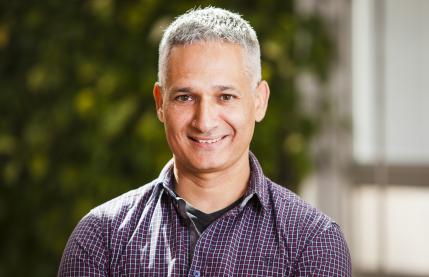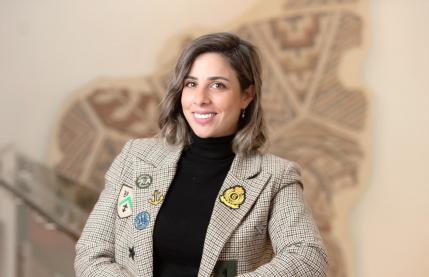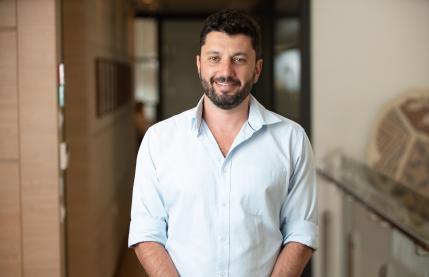At the crossroads of three continents, Israel’s natural features are remarkable. Despite its small landmass, high population density and the scarcity of water and other natural resources, the country is replete with unique ecosystems, making it a biodiversity ‘hotspot’. But development needs, national priorities and a lack of awareness are often at odds with environmental concerns and this has resulted in the degraded and fragile state of many ecosystems that underpin Israelis’ well-being.
The Environment Programme at Yad Hanadiv was established with the aim of improving the resilience and health of Israel’s natural, agricultural and urban ecosystems. Early efforts were geared towards generating scientific knowledge and infrastructures in the service of informed policy making. These included the establishment of the Water Research Institute at the Technion, better understanding and planning of open landscapes and land use (the Deshe Institute), supporting research and practice at the intersection of agriculture and environment (Nekudat Hen), systematic biodiversity monitoring by Hamaarag, the Israel Taxonomy Initiative, and science-to-policy fellowship programmes (Mimshak). In 2007 Yad Hanadiv established the Environment and Health Fund (EHF), which emphasizes reducing exposure of the public to harmful chemicals.
Current strategies are aimed at preserving ecosystems in the Mediterranean Sea through the establishment of a network of Marine Protected Areas, restoring streams through Integrated River Basin Management, and reducing heat in urban spaces by promoting tree planting and conservation. We recognize the essential need for collaboration with government agencies and NGOs, while emphasizing professional knowledge, science-based policy and long-term planning.
Major Initiatives
Yad Hanadiv's core strategies and major areas of focus
Marine Protected Areas
River Rehabilitation
Zipori River Park
Yad Hanadiv initiated a competition in December 2019 to select a river rehabilitation project that could provide social and ecological benefits and serve as an inspiring model for similar initiatives.
This project aims to:
- Bring streams to good ecological health, eliminating hazardous pollution and waste
- Provide local communities with an inclusive, shared public space for recreation, education and economic development
- Demonstrate the societal benefits of river rehabilitation
- Create a model of shared governance to regulate interests and activities for the common good
The Kishon Drainage and River Authority (DRA) won the competition with a proposal to rehabilitate the Zipori Stream, which flows for 32 km from the Nazareth Hills to the Kishon River and Haifa Bay. The project was selected from a shortlist that included the Kinneret Drainage and River Authority and the Kiryat Shmona Municipality for the restoration of the Ein Zahav and Ayun Streams; the South Jordan DRA for the Tabor Basin Stream; and the Soreq Lachish DRA for sections of the Soreq Stream near Beit Shemesh and the Tzora Valley.
The Zipori Stream is highly significant because it is part of a key ecological corridor in Israel that connects the Mediterranean Sea to the Jordan Valley and the Sea of Galilee. The stream – with its valuable and accessible open spaces – has recently grown increasingly important due to development plans in the area. It plays a crucial role in conserving habitats and biodiversity.
The vision of the Zipori River Park initiative is to build a healthy ecosystem with rich biodiversity, and develop the area in a way that attracts tourists, locals and the public at large. The project will also create a series of open spaces that integrate natural and sustainable agricultural practices with community-oriented infrastructure, thereby enhancing the area’s capacity to cope with climate change.
The project, which took off in 2021, focused on the Zipori Stream’s restoration, water quality, social development, environmental awareness and nature conservation. It could serve as a model for other coastal stream restoration projects, with knowledge sharing both within Israel and abroad. Committee members involved in the programme, including experts from the UK and France, have said that the initiative ‘would be a breakthrough in the field of river rehabilitation in Israel and could provide inspiration at an international level.’
Urban Forestry and Shading
Environment and Health Fund
The Environment and Health Fund (EHF) was established by Yad Hanadiv in 2007 as a non-governmental, not-for-profit organisation. EHF is committed to promoting research and knowledge relating to the impact of environmental hazards on public health in Israel, with the ultimate goal of improving human health and well-being. EHF supports interdisciplinary research, providing fellowships for advanced degrees, sponsoring in-service professional training, and organising workshops and conferences. It provides unbiased, evidence-based, authoritative information to policy makers, professionals and the general public in an effort to improve the decision making process about the health risks of environmental factors. Since 2016 EHF has focused on promoting research and policy to reduce exposure of the public, especially children, to harmful chemicals.
The Fund’s achievements include the establishment of two centres of excellence in universities for interdisciplinary research combining environmental and health sciences; dozens of research grants and scholarships to researchers; cultivation of a professional community via conferences and professional training both within Israel and internationally; and publishing reports and newsletters on the current state of the field in Israel.
This initiative has encouraged leading researchers to conduct health and environmental research, and established a meaningful body of knowledge that was previously non-existent in Israel. The Fund has also succeeded in raising awareness and given the medical community a channel through which they can warn the public about the negative health impacts associated with exposure to environmental pollutants.
In the realm of policy advancement, the Fund played a pivotal role in the creation of the National Biomonitoring Programme and the Biomonitoring Laboratory, in collaboration with the Ministry of Health. Additionally, it led to a series of standardizations that restrict the presence of toxic chemicals in consumer products for children.






